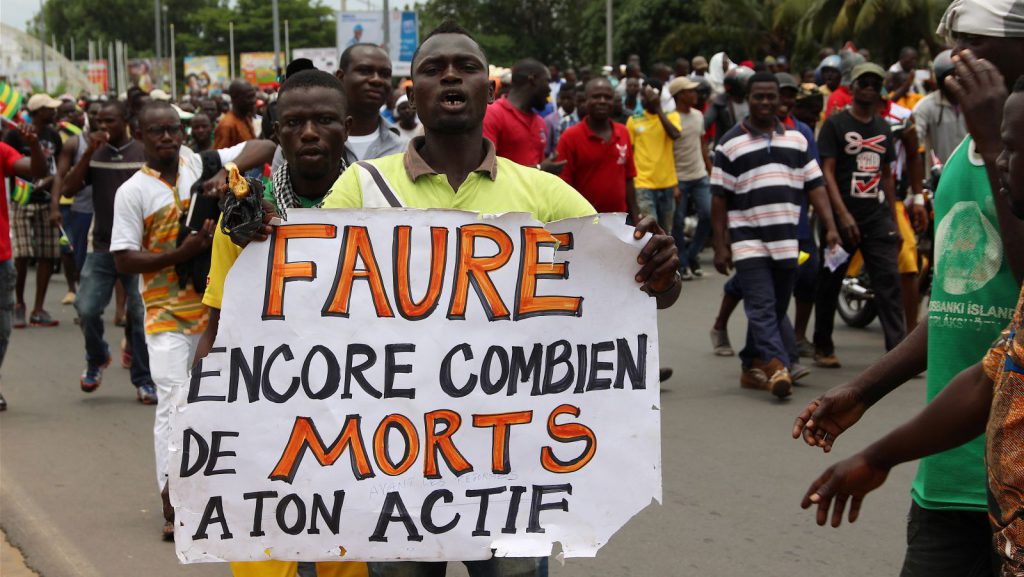The government of Togo has taken down instant messaging mobile phone application, WhatsApp to slow down the spate of anti-government protest across the country.

The internet has been intermittent in Togo with the government blocking access to social media networks and shutting down mobile messaging, activists in the country have confirmed to Quartz.
The slowdown started on Tuesday night (Sept. 19) after opposition members boycotted a parliamentary session that proposed changes to presidential term limits and called for protests on Wednesday and Thursday. Anti-government protests have spread across Togo in recent weeks calling for president Faure Gnassingbé to step down and allow constitutional reforms.
Gnassingbé took power in 2005, succeeding his father, Gnassingbé Eyadéma, who ruled the west African nation for 38 years. Police have used force against protesters, and one child was reported dead in the ensuing clashes.
Emmanuel Agbenonwossi, an internet policy researcher in the capital Lomé, said WhatsApp was blocked on all mobile networks. Most users, he said, were using virtual private networks (VPN) like Turbo and Cyberghost to circumvent the block and stay connected. Agbenonwossi noted the block was most likely linked to the protests and that neither the government nor telecom companies have provided an explanation as to the reduced bandwidth or SMS block.
“People use WhatsApp to share images as long as the protests are going on,” Agbenonwossi said.
Over the last few years, more and more African governments have come to recognize the potential of WhatsApp as a political tool to disseminate information. The messaging platform has been blocked in Uganda, Zimbabwe, and in DR Congo ostensibly for security concerns ahead of protests or elections.
Free calls and messaging on the platform has also reportedly pushed countries like Egypt to block WhatsApp, after regulators have been lobbied by local telcos who are losing voice and SMS revenue. In Kenya, WhatsApp has also been used to drive the fake news cycle that dogged the recent elections, pushing its parent company Facebook to take adverts in local newspapers on how to spot false stories.
The shutdown comes barely two weeks after Togo became the latest African country to block access to the internet so as to counter opposition protests. The six-day blackout cost the country an estimated $1.8 million dollars, according to the digital rights advocacy group, Access Now.
To protest the shutdown, social media users have been using hashtags like #TogoDebout (stand up Togo) and also #AskCina, in reference to Cina Lawson, the minister of posts and digital economy in Togo.
Agbenonwossi said the slowed connection is inconveniencing users and is contributing to the rising tensions in the country. “We don’t know what they [the government] want and they are not accountable to anybody,” he said. “The whole system is a mess right now.”
Subscribe to our Youtube Channel: